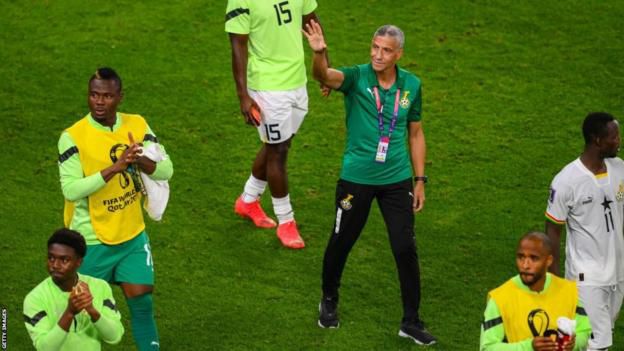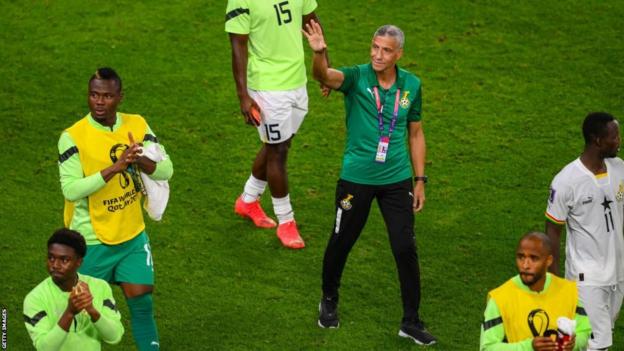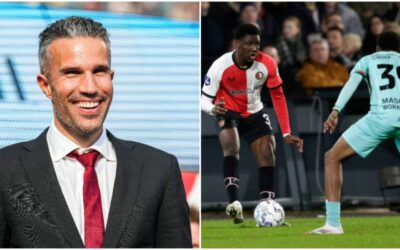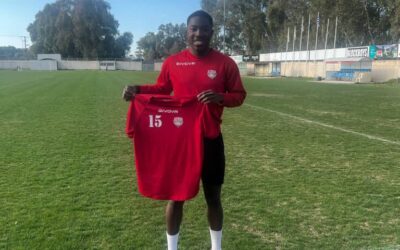
In the aftermath of Ghana’s disappointing exit from the 2023 Africa Cup of Nations under the leadership of coach Chris Hughton, it is evident that the nation’s football woes run deep.
The recurring theme of underwhelming performances, coupled with structural issues, calls for a thorough examination and a strategic shift.
Coaching Carousel
Over the past four years, Ghana has witnessed four coaching changes, highlighting the impatience with a lack of a clear pattern of play, poor results and woeful tournament showings.
However, the issue persists despite these changes, emphasising that the problems extend beyond the coaching staff. The win rates of previous coaches have been sub-par, signaling a need for broader reforms.
Beyond the Coach
Questions arise about the role of the Black Stars management committee and the Ghana Football Association (GFA) in providing a conducive environment for coaches.
While coaching changes address immediate concerns, deeper issues within the team structure, culture, and management persist. The need for timely payments and a supportive system must be addressed to ensure the team’s success.
The Root of the Problem
Ghana’s recent football struggles are not confined to the senior team; youth teams are also facing challenges. A comprehensive review is essential, examining the grassroots development, scouting, and squad planning.
Emulating successful models like Senegal’s or Morocco’s interconnected youth systems can pave the way for sustainable success. There is no clear pathway from U17 through to the senior side.
Way Forward
As Ghana seeks redemption, a sincere apology to the fans and a detailed inquiry into the recent AFCON failures are paramount. The GFA must demonstrate a commitment to learning from past mistakes.
Moreover, unrealistic expectations, like aiming for the AFCON trophy without addressing fundamental issues, must be tempered. They have thrown dust into the eyes of the Ghanaian public for far too long.
Youthful Prioritisation
Ghana’s historical success has often been rooted in trusting and developing youth talent. It’s time for leaders to prioritise youth systems, fostering a seamless transition from U17 to the senior team.
Establishing a strong link between different age groups from U17 to U20 to the U23s can ensure a pipeline of talent for the future. Until that is done, the senior side will continue to look like a collection of individuals rather than a team.
Scouting and Squad Planning
A critical aspect that demands immediate attention is scouting and squad planning. Dependence on certain players without a clear succession plan has proved detrimental.
Injuries and a lack of squad depth have been evident pitfalls, necessitating a more thoughtful approach to building a competitive team to face any setbacks.
The Next Chapter
The next coach of Ghana faces a monumental task. A strong voice, an impeccable reputation, and the authority to reshape the team’s culture are prerequisites.
With a burgeoning pool of young talent, a competent coach can guide Ghana to a resurgence, provided they are selected based on merit and operate in a nurturing environment.
In conclusion, Ghanaian football stands at a crossroads. Structural changes, youth prioritisation, and a holistic approach to team management are imperative for the nation to reclaim its footballing glory.
The journey to recovery begins with acknowledging the issues at hand and implementing decisive reforms for sustained success. The entire nation watches on to see if the GFA are competent enough to carry this rebuild out.





0 Comments